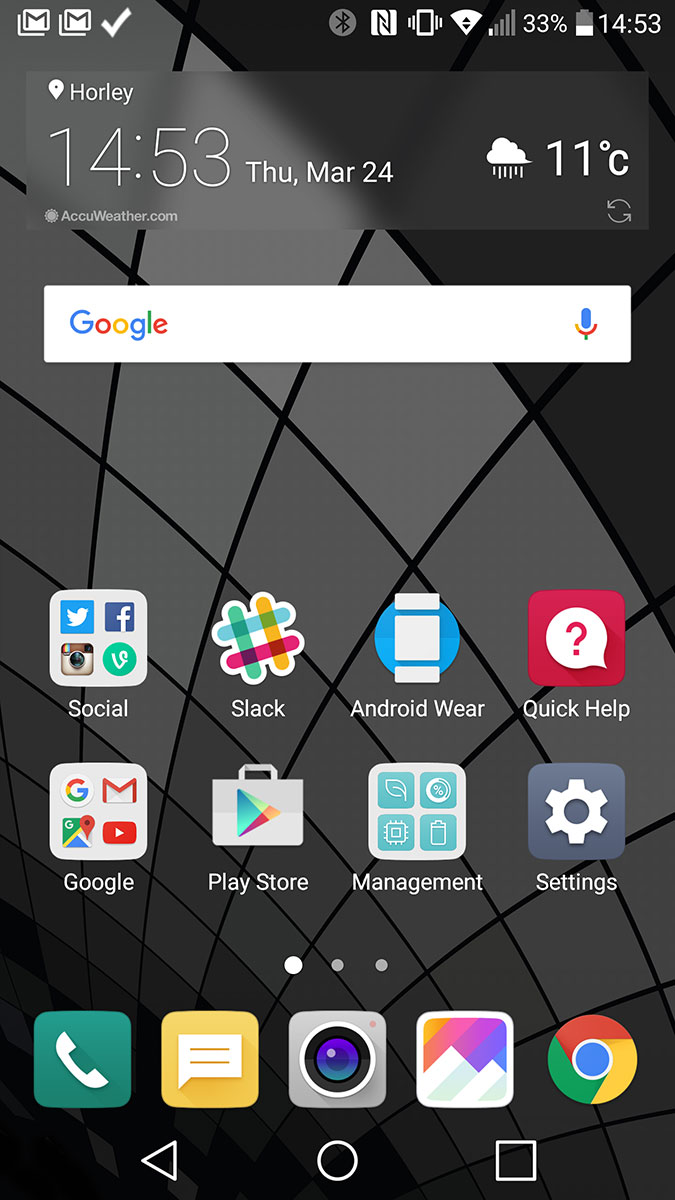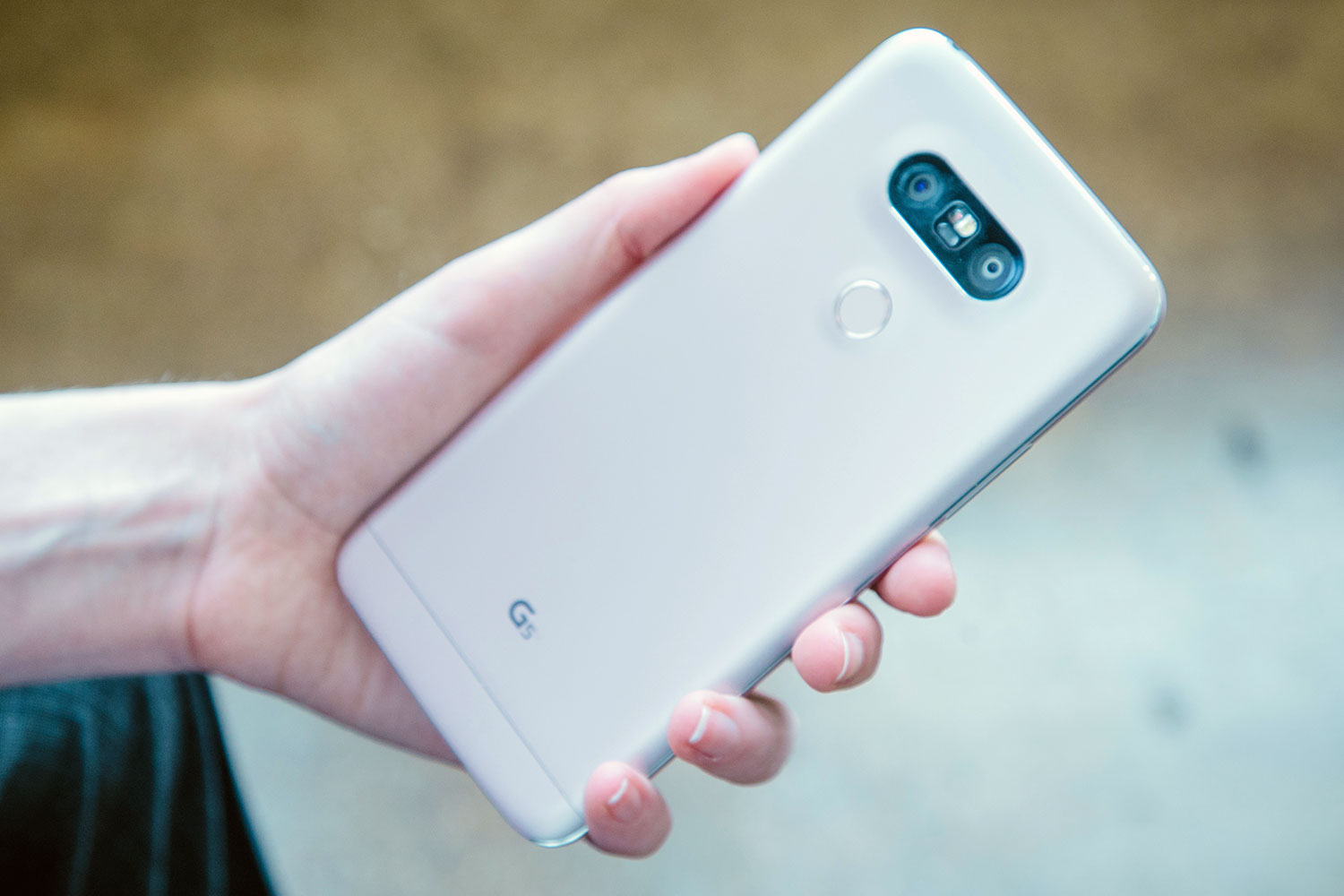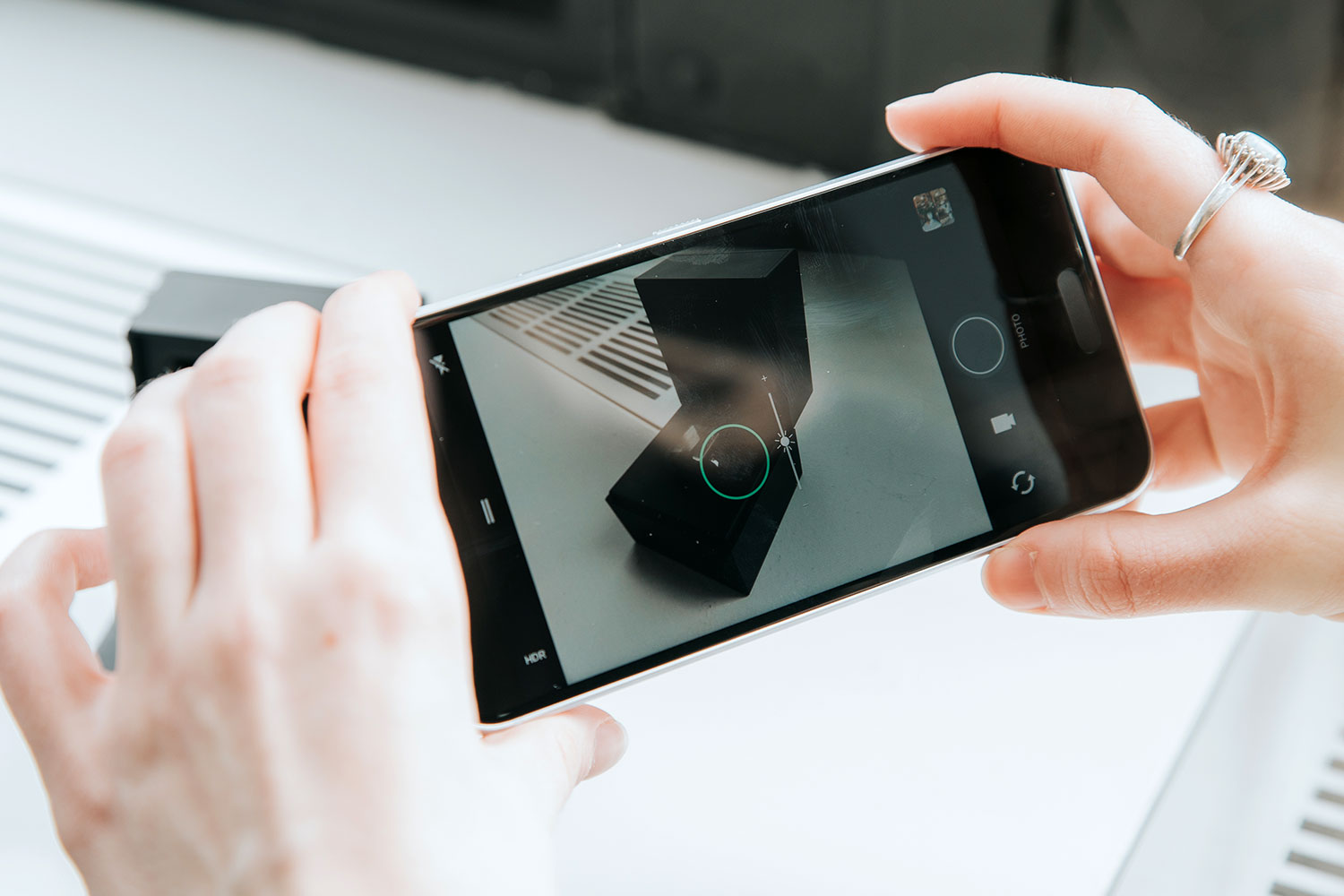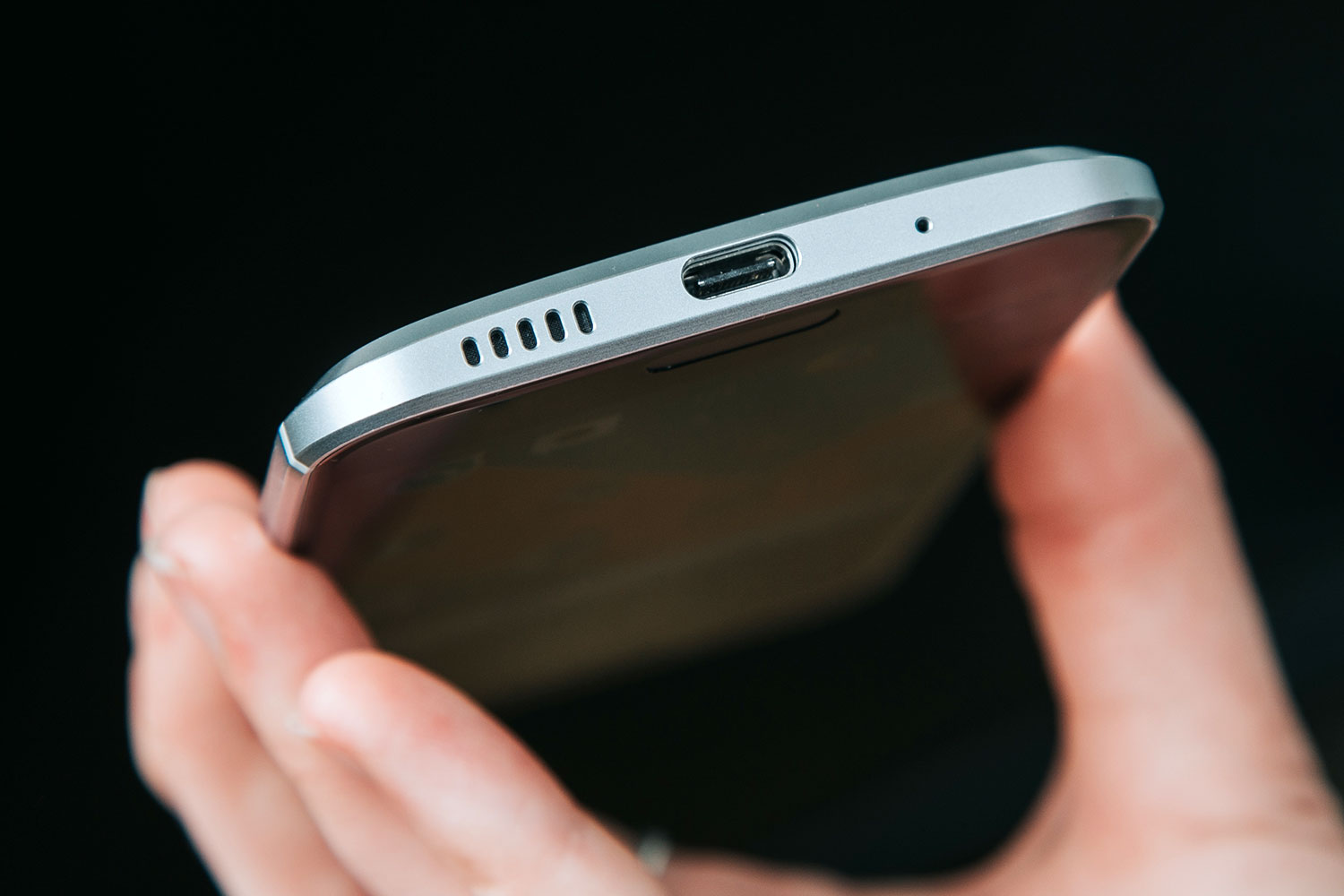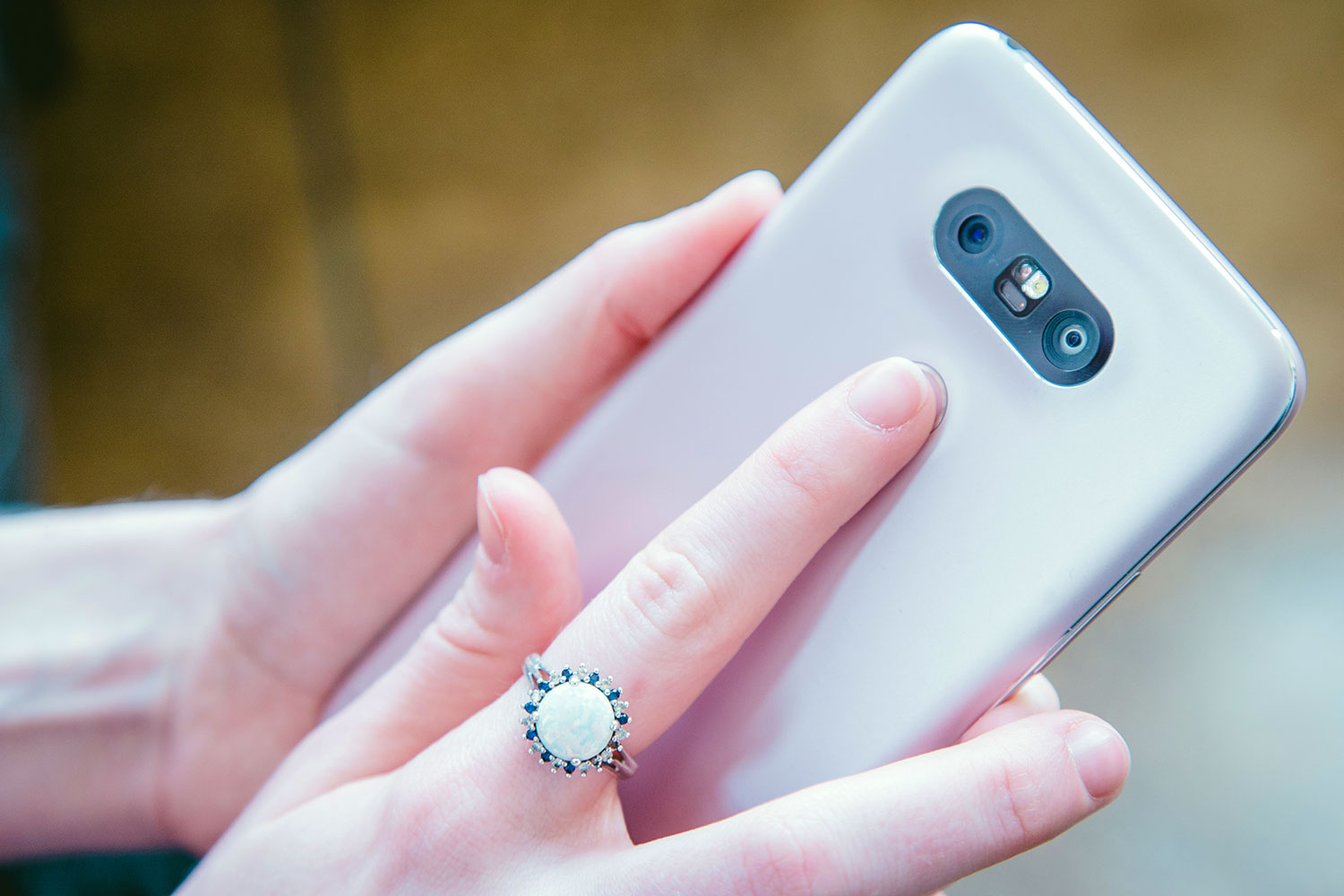After months of leaks and rumors, the HTC 10 is finally here. The next-generation phone replaces the M9 as the company’s flagship, bringing with it a powerful chipset, a sleek design, and powerful camera capabilities. It’s poised to be one of the finest HTC smartphones to date, but how does it compare with LG’s G5? Below, you’ll find a in-depth breakdown of each device, as well as comprehensive analysis of how the HTC 10 stacks up to the LG G5 in terms of power, design, and the all-important camera quality.
Specs
| HTC 10
|
LG G5
|
|
| Size | 5.7 x 2.8 x 0.35 inches | 5.88 x 2.91 x 0.30 inches |
| Weight | 5.7 ounces | 5.61 ounces |
| Display | 5.2-inch Super LCD 5 | 5.3 IPS LCD |
| Resolution | 2,560 x 1,440 | 2,560 x 1,440 |
| Operating System | Android 6.0 with HTC Sense | Android v6.0.1 Marshmallow |
| Storage | 32GB | 32GB |
| Chipset | Qualcomm MSM8996 Snapdragon 820 | Qualcomm MSM8996 Snapdragon 820 |
| RAM | 4GB | 4GB |
| Camera | 12 MP Primary, 5 MP Secondary | 16 MP primary, 8 MP secondary |
| Video | 2160p@30fps | 2160p@30fps primary, 1080p@30fps secondary |
| VR | Google Cardboard | LG 360 VR headset, Google Cardboard |
| Connectivity | NFC, Bluetooth 4.2, Wi-fi | NFC, Bluetooth 4.2, Wi-fi |
| Sensors | Ambient light, proximity, Motion G-sensor, gyro, compass, magnetic sensor, fingerprint, sensor hub | Fingerprint, accelerometer, gyro, proximity, compass, barometer, color spectrum |
| Battery | Non-removable Li-Ion 3000 mAh battery | Removable Li-Ion 2800 mAh battery |
| Marketplace | Google Play | Google Play |
| Price | From $700 | From $690 |
| Carriers | Verizon, T-Mobile, Sprint | AT&T, Sprint, T-Mobile, Verizon, U.S. Cellular |
| DT review | 4 out of 5 stars | 4 out of 5 stars |
Power and performance
Both phones come with Qualcomm’s Snapdragon 820 chipset, which offers a dual-core 2.15GHz Kryo and dual core 1.6GHz Kryo central processor, along with an Adreno 530 graphics processor. As such, the HTC 10 and LG G5 should be able to run games and apps at the same level of performance, especially considering both phones tout 4GB of RAM. In our tests, the two phones seem equally speedy, and even scored about the same in benchmark tests.
In terms of screen size and quality, both offer 2,560 x 1,440 pixel resolution screens, which are sharp and crisp. The HTC 10’s 5.2-inch screen sports 564 pixels-per-inch though, whereas the G5’s 5.3-inch screen offers 554 pixels-per-inch. The G5 does offer an Always-on display, which will show you the time every moment of every day. It’s a nice feature, but LG’s Always-on display isn’t as bright as the one on Samsung’s Galaxy S7, and it does drain a bit of battery life. HTC’s 10 doesn’t offer the feature at all.
The base models of both phones come with 32GB internal storage — which is a fair amount for most users — but those who find themselves taking tons of photos and video will find the storage size a bit restrictive. Luckily, both phones offer expandable storage via a MicroSD card slot. So far, the two devices are completely tied in this battle with equally great specs.
Winner: Tie
Software and updates
Unless you’ve got a Nexus phone, your Android device is probably running some kind of user interface on top of Google’s operating system. The LG G5 runs Android 6.0.1 Marshmallow, the most-current version of the Android OS, and delivers a core Android experience that skimps on bloatware. It’s a pretty clean experience, though you will see some duplicate apps and some additions from LG.
- 1. HTC 10
- 2. HTC 10 Theme
- 3. LG G5
Meanwhile, the HTC 10 also uses the most recent version of Android with Sense UI on top. HTC really scaled back Sense this year, so it looks almost as clean as stock Android. There are less additional apps onboard, and the experience is simpler. Fans of stock Android will love the HTC 10 for its simplistic approach to Android, though in the end, the G5’s UI isn’t too heavy, either.
HTC has a few advantages over LG, though. It’s first advantage is the Theme Store, which allows you to customize every aspect of your phone from the wallpaper and icons, to the color scheme. It’s a fun way to jazz up your phone and make it your own.
The company is ranked second best at issuing timely software updates to its users, which means you’ll get the latest version of Android much earlier than your fellow Android users. Timely updates are important for several reasons, but the most important one is security. Now that bugs like Stagefright and Heartbleed are frighteningly common, it’s important to get critical updates as soon as possible.
Winner: HTC 10
Battery life
You’re also going to find differences between the two phones when it comes to battery life. The HTC 10 sports a 3,000mAh battery, which squeezes in a bit more juice than the LG G5’s standard 2,800mAh battery. Both charge up quickly via QuickCharge 3.0 and USB Type C. We typically got through a full, busy day with both devices before we needed to charge them up again. There was very little discernible difference in battery life with the two phones.
However, the LG G5’s battery is removable, unlike that on the HTC 10. This isn’t necessarily a major factor, but if you are among the many smartphone user who prefer removable batteries, the G5 has you covered. That said, changing the battery isn’t quite as simple as it used to be. LG added a button on the side of the device, which helps you eject the bottom edge of the phone. When you slide it out, you’ll see the battery. You have to yank the battery out of the base, though, which feels a bit scary when you’re not used to it. If you’re interested in swapping batteries or using some of LG’s friends modules, you’ll have to get used to the maneuver.
Winner: Tie
Design, camera, and more
Design
Purely based on the numbers, the HTC 10 and the LG G5 are quite similar. However, when it comes to design, the two devices are very different.
The HTC is sleek, its aluminum case and glass screen forming a single, continuous form factor. An oval-shaped fingerprint sensor is on the front of the device for security and quick unlocking. The metal back has a sexy, machined edge at a 45-degree angle that really captures the light. It’s a gorgeous phone that recalls the glory days of HTC design, and it’s much more visually exciting than the G5’s bland unibody.
The LG G5 is also made of metal, but it doesn’t have a single antenna line across the back. There’s a round fingerprint sensor on the back of the device, and that’s it. It’s not really a remarkable looking device, though it may appeal to some.
In terms of dimensions, the two phones are very similar. The HTC 10’s solid aluminum body is 5.7 inches tall x 2.8 inches wide, 0.35 inches thick, and weighs 5.7 ounces. The LG G5’s dimensions are similar, given it measures 5.88 inches tall x 2.91 inches wide, 0.30 inches thick, and weighs 5.61 ounces. Both phones are comfortable to hold, though the HTC 10’s curved back and grippy edges make it feel better in the hand.
LG really toned down its design this year to focus on perhaps the most innovative feature of all — modularity. We’ll go into more detail on the modules in the next section. We personally prefer HTC’s design over the LG G5, but beauty is in the eye of the beholder.
Winner: HTC 10
Special features
When it comes to special features, LG’s G5 is the clear winner. It’s the first modular smartphone to ever reach customers’ hands, and each module brings a special power to the G5, whether it be a better camera, hi-fi audio, or extended battery life. Swapping out modules is relatively simple, albeit scary the first time. The internal battery is removable with the simple push of a button, and it pops out the lower end of the phone’s body. This makes swapping out a dead battery with a fresh one a breeze. The removable section can also be equipped with numerous modules — or “Friends” as LG has named them — including a Hi-Fi 32-bit audio booster and an extra camera control module with 400mAh battery.
Sadly, the hi-fi module isn’t available in the U.S., yet, and LG hasn’t confirmed if it will arrive to the States. The number of modules is limited as it is, but LG is trying to inspire companies to create their own. If the ecosystem grows, the modules will be very cool indeed. Currently, there aren’t too many, which makes us question how big of a factor modularity should be in your purchasing decision. Regardless, if you’ve always wanted a modular phone, the G5 is for you.
The HTC 10 doesn’t have such an obviously awesome special feature, but its robust audio capabilities will make audiophiles drool. The 10 boasts BoomSound Hi-Fi 24-bit speakers, but sadly, they’re on the bottom of the device instead of the front. Regardless, these are the best-sounding speakers you’ll find on a phone in 2016 so far. The 10 also helps you create your own audio profile for listening to music through headphones. That way, you can enjoy your high-res tracks exactly the way you want to enjoy them.
One aspect where the two phones are surprisingly similar is the lack of virtual reality support. Strangely, despite HTC having arguably the best VR headset on the market with the HTC Vive, the HTC 10 is devoid of any VR accessories. HTC has stated that this is a conscious decision, as mobile phone-powered VR experiences tend to lag far behind that of premier VR experiences on PC. LG would like you to think that the G5 is capable of VR, listing the LG 360 VR headset as a compatible accessory, but this is simply a 360-degree video solution and does not allow you to use the LG G5 to play VR games or interactive experiences like, say, the Samsung Gear VR does.
Despite their lack of VR support, both phones have unique powers that will attract certain buyers. Techies will love the modular G5, but hi-fi audio fans will want to go with the HTC 10. We give the G5 the win in this category, though because it’s special features are arguably more impressive and versatile. However, we do wonder whether the modular phone will stand the test of time and just how many of you will actually be interested in buying modules.
Winner: LG G5
Camera
The cameras differ quite a bit between these two devices. The LG G5’s dual 16-megapixel camera setup on the back and its 8-megapixel selfie camera trounce the HTC 10’s 12-megapixel UltraPixel camera and 5-megapixel selfie camera on paper. In real life, the results aren’t too different, though the G5 was quicker to focus and typically capture better shots. The HTC 10 occasionally struggled to focus, but most of its shots were high quality.
In terms of features, both offer standard features such as manual mode, geotagging, touch focus, face detection, and panorama capabilities appear on both. The HTC 10’s optical image stabilization will help keep your images clear and focused by eliminating hand jitters on shots taken with the front and back cameras. On the other hand, one of the G5’s module add-ons is the LG Cam Plus, which imparts a broader spectrum of control and allows you to capture photos with more finesse.
When it comes to video quality, the two phones once again appear to be quite similar. Both are capable of capturing 2,160p-resolution video at 30 frames per second, and 1080p at 60 frames per second. The HTC 10 has slo-mo capture at 720p and 120fps, but outside of this, there isn’t much of a difference in terms of video capabilities.
We’re going to give this category to the LG G5, simply because of the better picture quality in shots we took, particularly in low-light conditions. The HTC 10’s feature-rich camera is still very impressive, especially compared to most other smartphones, but the G5 is still better.
Winner: LG G5
Price and availability
Those who find themselves yearning for the HTC 10 may want to double check the availability with their carrier. While major carriers such as Verizon, T-Mobile, and Sprint offer the new HTC device, AT&T does not. You can buy the HTC 10 unlocked though, and it will work on any carrier.
The LG G5 is widely available on AT&T, Sprint, T-Mobile, Verizon, and U.S. Cellular. Of course, you can circumvent the carrier restrictions by purchasing the unlocked version. This means you’ll have to pay the full price of the phone upfront — without the subsidies and payment plans you often get through a carrier. If do decide to go this route, opting for the LG G5 will save you a whopping $10, as an unlocked G5 runs for $690 while the HTC 10 costs $700. Keep in mind that the modules for the G5 will cost you extra, and they aren’t cheap.
The HTC 10 may be harder to find at carriers’ stores right now, but otherwise, it’s more or less on par with the G5.
Winner: Tie
Overall winner: HTC 10
There are legitimate cases for both the HTC 10 and the LG G5. In terms of power, they’re virtually identical, but they feature very different designs, software, and special features. The HTC 10 will be the go-to for those who prefer a nearly stock Android, a sleek design, and hi-res audio playback. The LG G5, on the other hand, will appeal to those looking for a simpler design, fun modules, and a more capable camera.
You honestly can’t go wrong choosing either device. If you just want a great phone, the HTC 10 is our pick. It has everything you need in the box, including hi-res audio support and a very good camera. However, if you’re looking for more out of your device and don’t mind taking a chance on the G5, it’s also well worth your money.




